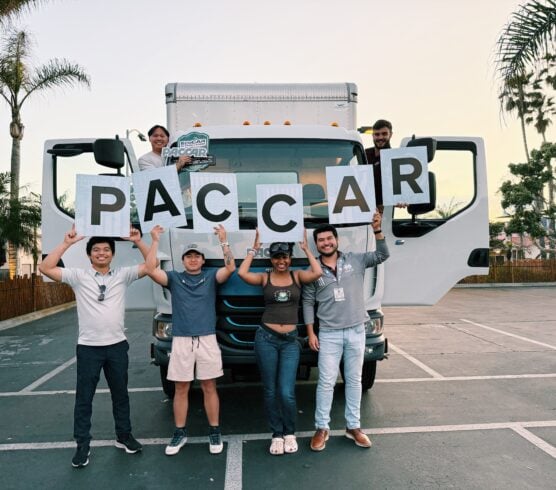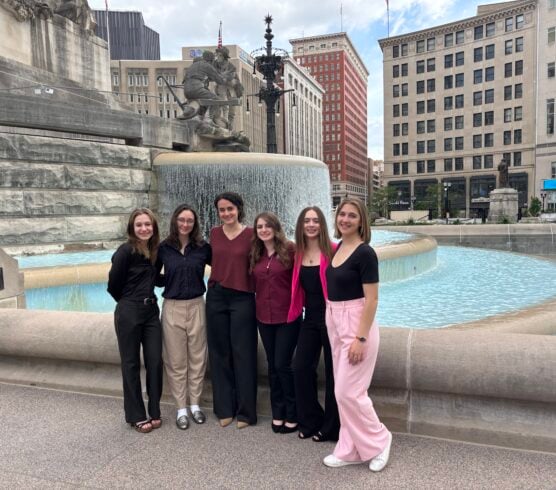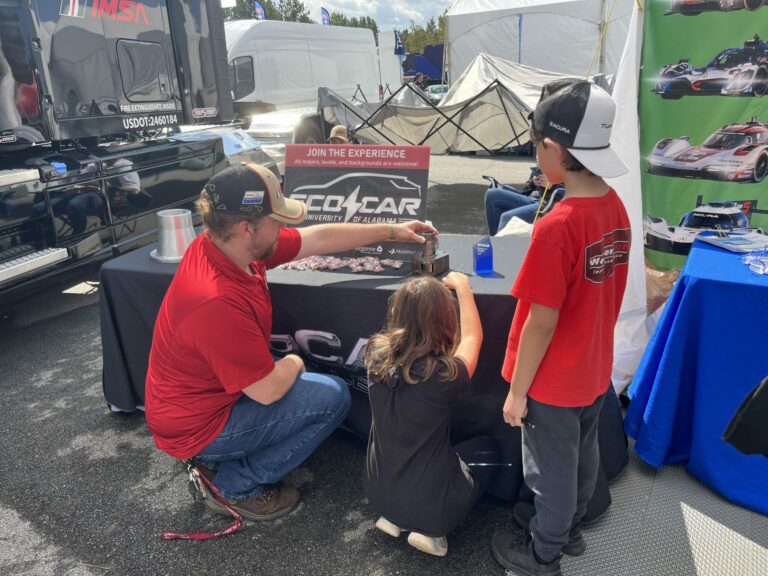
At the heart of motorsports, the world of racing has long been associated with high-octane excitement and roaring engines. But what if the thrill of the race can go hand in hand with sustainability and innovation? This is precisely the message brought to life with the Green Racing Series.
U.S. Department of Energy: Driving Sustainable Racing
1988 marked the start of the first Advanced Vehicle Technology Competitions (AVTCs), conceptualized by Al Streb, former deputy assistant secretary for the Energy Efficiency and Renewable Energy (EERE) at the U.S. Department of Energy (DOE). Since then, AVTCs have hosted over 30,000 students and 99 educational institutions in North America. But the work the DOE has done in the automotive goes beyond just AVTCs.
The U.S. Department of Energy, alongside partners like the Environmental Protection Agency (EPA),has been at the forefront of promoting green racing through the development of Green Racing Protocols.
The Green Racing Protocols have played a pivotal role in reshaping the automotive industry’s approach to motorsport. In fact, John Doonan, the president of the International Motor Sports Association (IMSA), has noted how these protocols influenced IMSA’s journey toward sustainable racing. IMSA, which boasts 18 automaker partnerships, actively collaborates with the EPA and other organizations to emphasize the significance of eco-friendly racing.
Doonan commented on IMSA’s transition to sustainable racing, highlighting the development of alternative fuels, sustainable tires, hybrid technology, and even solar power solutions. This commitment to eco-conscious practices has earned IMSA recognition as one of the most sustainable racing series in North America. It’s not just about the competition; it’s about telling a story of responsibility and environmental stewardship.
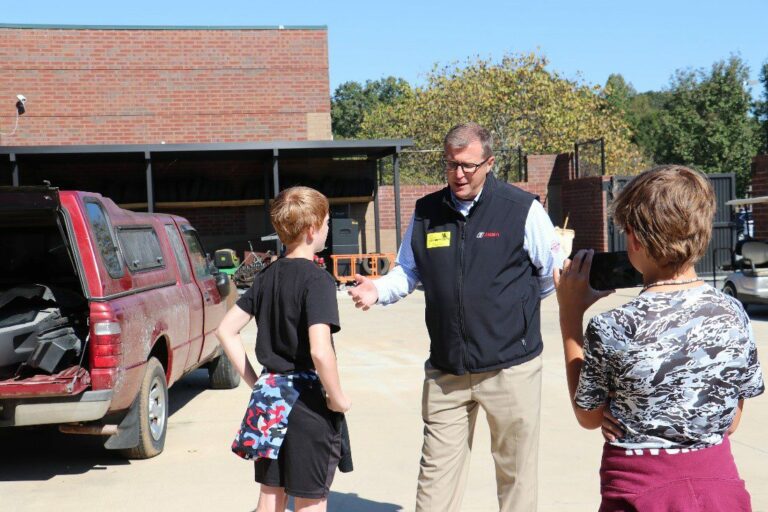
UA EcoCAR at the Motul Petit Le Mans
The University of Alabama EcoCAR team traveled to Georgia to participate in the Road Atlanta Motul Petit Le Mans October 12-14. The collaboration with the DOE during the Motul Petit Le Mans was not just about racing; it was about bringing the ethos of sustainable racing to the next generation. Throughout the week, the UA EcoCAR team engaged in various activities that extended beyond the racetrack.
Educational Outreach:
UA EcoCAR joined forces with the EPA and IMSA to visit Chestatee High School. There, team members had the opportunity to speak with students in Automotive Technology classes. Collectively, these organizations shared insights about the automotive industry, career opportunities, and there was even a vehicle competing in the Petit Le Mans for the students to see up close. In addition to this, students from Chestatee traveled to Road Atlanta where they witnessed the exciting world of motorsports. They toured the paddock, observed the pit crew in action, listened to talks from IMSA, EPA, and EcoCAR, and even had the chance to have lunch with the drivers.
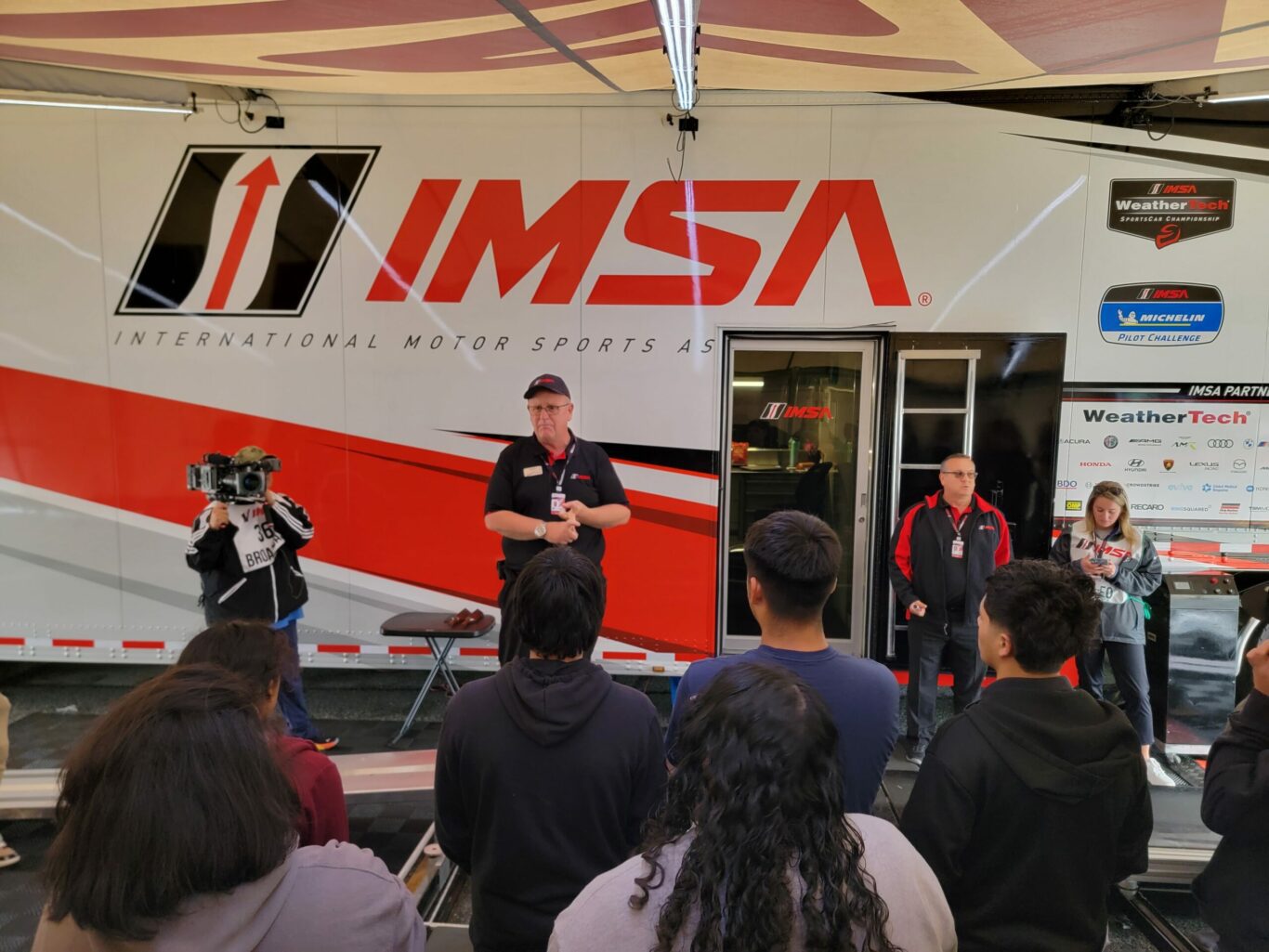
Expo Participation:
Throughout Thursday to Saturday, UA EcoCAR hosted a table at the vendor expo with the EPA, where the EcoCAR team engaged with visitors and industry partners. Members of EcoCAR discussed the EcoCAR EV Challenge with visitors, showcasing how the team are contributing to the future of sustainable automotives and developing the next generation of leaders in the automotive industry.
Industry Engagement:
The time working with the EPA was invaluable. They not only added to the depth of discussions but also underscored the importance of responsible racing practices. Christine Mikolajczyk, Program and Project Manager at the EPA spoke with the team about the use of innovative technologies and alternative fuels in these races and the importance of sustainability within the motorsports industry since it can transition to vehicles on the road.
In addition to this, with help from Kalvin Parker, the Assistant Cadillac Racing Program Manager, the team was able to connect with a UA EcoCAR 3 alumni, Andy Hamley, who is now the Hybrid Lead for Cadillac Racing. Members were able to take a close look at the Cadillac Racing trailer and car and learn more about the motorsports industry.
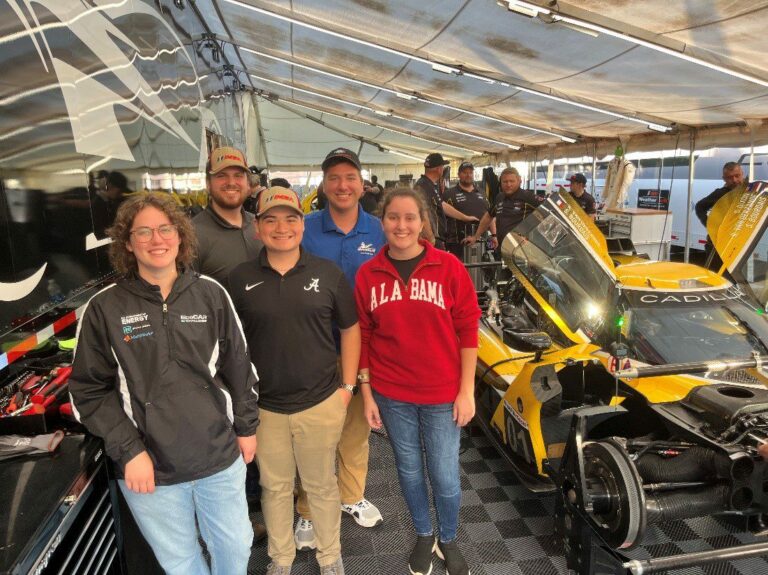
This experience at the Motul Petit Le Mans wasn’t just about the race; it was a showcase of how sustainability and education can come together to drive positive change. The support from the U.S. Department of Energy is instrumental, not just in the EcoCAR journey, but also in promoting the principles of green racing and inspire the next generation of automotive enthusiasts to be environmentally conscious.
To reflect on the partnership with the DOE and the UA EcoCAR involvement in the Motul Petit Le Mans, the team is proud to have been part of a movement that combines speed, innovation, and sustainability. This collaboration has not only energized the EcoCAR team but has also served as a beacon for the racing world to continue pushing boundaries while being responsible stewards of our planet.
